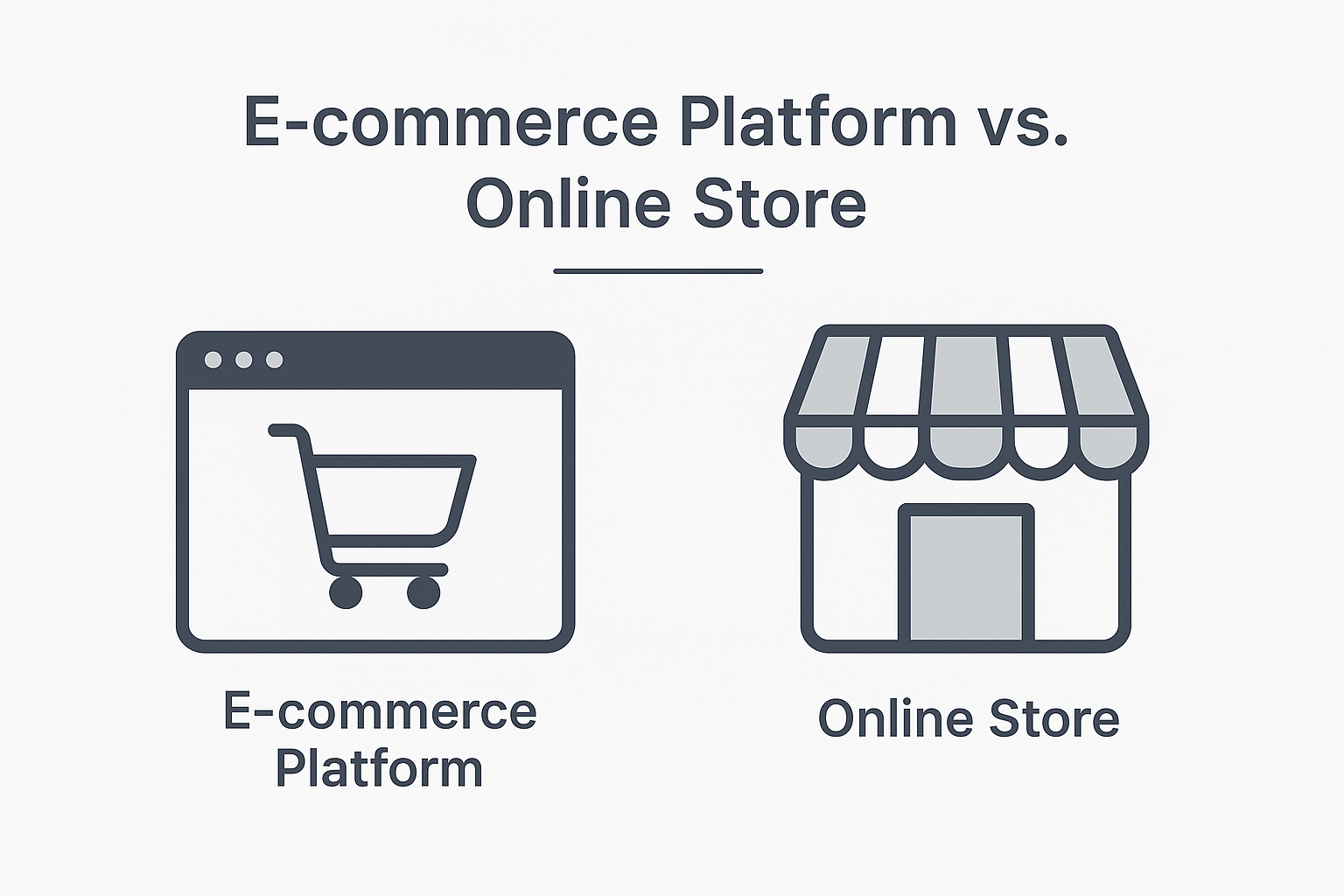E-commerce platform vs online store—what’s the difference, and why does it matter? While the two terms are often used interchangeably, they refer to very different concepts. Understanding this distinction is essential when choosing the right setup for your online business.
At Payment.net, we help you build smarter digital strategies. In this guide, we’ll explore what an e-commerce platform is, what an online store is, and how each plays a role in your overall success.
What is an e-commerce platform?
An e-commerce platform is a comprehensive software solution that gives businesses the tools needed to build, manage, and scale an online store. From product listings to secure payments, marketing tools to inventory tracking — it’s the operational backbone of your digital business.
Features of an e-commerce platform
- product management: easily add, edit, categorize, and manage your catalog
- payment gateways: accept payments securely through integrations
- customer management: track orders, accounts, and purchase behavior
- marketing tools: run email campaigns, SEO optimizations, and promotions
- order & return management: process transactions, returns, and customer service
- inventory tracking: manage stock levels and avoid overselling
Popular platforms include Shopify, WooCommerce, BigCommerce, and Magento.
Advantages of using an e-commerce platform
- customization: build a store that fits your brand and workflows
- scalability: supports businesses from startup to enterprise-level
- integrated tools: access features like shipping, analytics, and CRM
- third-party compatibility: easily plug in external tools like accounting software or email platforms
What is an online store?
An online store is the customer-facing website where products are displayed, purchases are made, and transactions take place. It’s essentially the « shop window » of your business, built using an e-commerce platform as its foundation.
What customers can do on an online store
- browse products: explore collections, read descriptions, and view photos
- add to cart: select items for purchase and store them while shopping
- checkout securely: enter payment details and complete orders
- track orders: view past purchases, shipment status, and initiate returns
While the platform powers the backend, the online store defines the user experience and directly influences your conversion rate.
E-commerce platform vs online store – Key differences
1. Functionality
- e-commerce platform: manages all behind-the-scenes operations — inventory, payments, analytics, and more
- online store: the interface customers see and use to buy your products
2. Customization and control
- e-commerce platform: offers advanced backend customization and integration options
- online store: customization is mostly visual and user-experience focused (themes, layout, etc.)
3. Audience focus
- e-commerce platform: designed for merchants managing store operations
- online store: designed for customers making purchases
4. Platform
- e-commerce platform: Shopify, Magento, WooCommerce, BigCommerce
- online store: your live Shopify or WooCommerce site (the public-facing version)
Why it matters for your business
Choosing between an e-commerce platform and an online store isn’t really an either/or decision — you need both. The platform provides the functionality and infrastructure, while the store delivers the user experience that drives sales.
Understanding the difference helps you make strategic decisions:
- Which platform best fits your needs?
- How should your store look and feel for maximum conversions?
- What tools do you need behind the scenes to manage growth?
Whether you’re launching a new brand or scaling a growing business, aligning your e-commerce platform and store experience is critical for success.
Conclusion
In short, an e-commerce platform is the backend engine that powers your digital business, while the online store is the frontend experience where sales happen. Together, they form the complete infrastructure for selling online effectively.
At Payment.net, we support both — helping merchants process payments smoothly across any platform or store setup. Whether you’re just starting out or optimizing an existing operation, we simplify payments so you can focus on growth.
🚀 Want to streamline your payment system?
Contact Payment.net today to discover how we can support your e-commerce journey.


